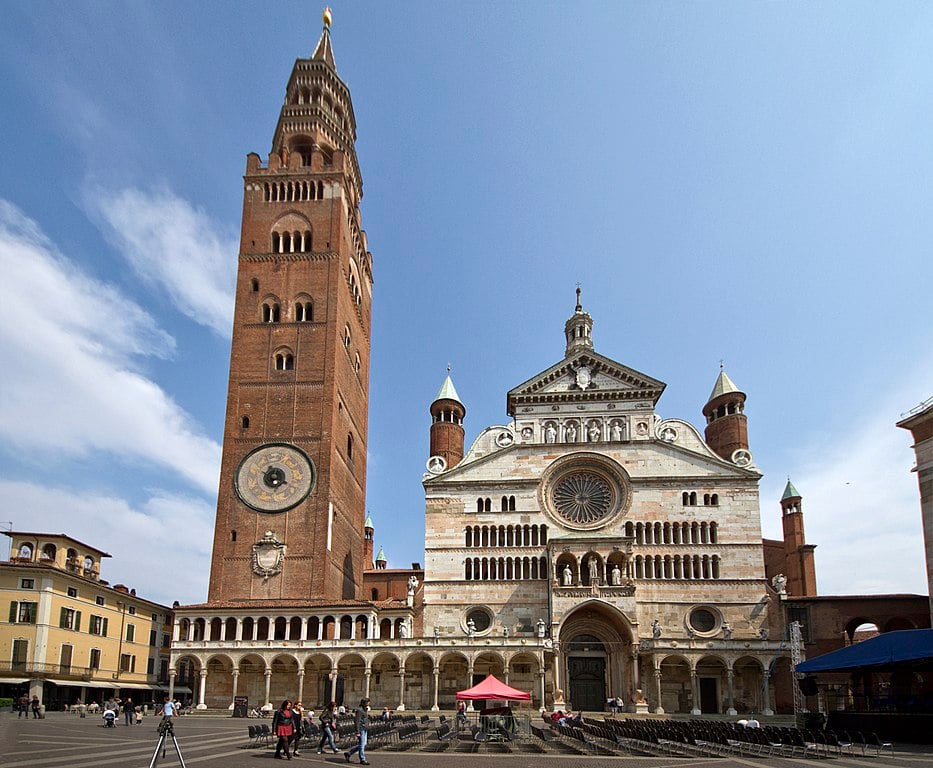13 November was the feast day of St Homobonus, the patron saint of businesspeople, tailors and shoemakers.
St Homobonus was a layperson, and unlike many saints who were priests or monks, he led a simple life as a businessman. By all accounts, he ran a successful business, which he used to support his family and help the less fortunate in Cremona, Italy. He viewed wealth as a means to serve others rather than a way to accumulate personal riches. He built his wealth and ran his business with scrupulous honesty.
He lived in 12th century Cremona, Italy, and died on 13 November 1197. The Cathedral in Cremona, where he is buried, describes St Homobonus as a layman and fabric merchant who embraced voluntary penance and dedicated himself to prayer, devotion to the Cross and works of charity, such as housing and helping the poor. He was a man of peace and a reconciler of the turbulent vicissitudes of communal life.
Nine hundred years later, this remarkable saint offers timeless lessons that resonate deeply with modern business leaders. His life exemplifies Catholic leadership.
A Lesson in Purpose-Driven Work; St Homobonus viewed his work as a vocation—a way to serve others and honour God—not a means to become wealthy. Following his example, business leaders can strive to make a positive, optimal impact in the lives of employees, customers, stakeholders, and the surrounding community, seeing their work as a way to contribute to the common good. This mindset fosters workplaces that value their impact on society and the well-being of employees.

A Lesson in Integrity Over Profit; St Homobonus conducted business honestly, never exploiting others for personal gain, which earned him trust and respect in Cremona. Modern business leaders can learn from his example by building transparency and fairness into their business culture. Such integrity fosters long-term trust and loyalty among both employees and customers, which are more valuable than short-term financial success.
A Lesson in Generosity and Social Responsibility; St Homobonus used his wealth to support the less fortunate, believing that the wealth generated by his business was a resource to be shared. This belief has been elucidated in Catholic social teaching over the years, with several church fathers, popes and saints writing beautifully on the topic. St Homobonus saw his success as an opportunity to uplift others, donating both money and time to his community. Today’s business leaders are in a unique position to dedicate their time, talent and treasure to the common good.
A Lesson in Humility and Modesty; Despite his wealth, St Homobonus lived modestly and was not attached to the trappings of success. He didn’t seek attention or recognition for his charitable work; instead, he quietly worked toward the betterment of his community. In a business world often driven by accolades and personal branding, modern leaders can benefit from approaching their roles with humility.
A Lesson in Empathy and Compassion; St Homobonus was deeply empathetic, reaching out to those in need without judgment and helping without expecting anything in return. Compassionate leadership—caring for employees, listening to their concerns and supporting them during hardships—is based on Christ’s commandment to love your neighbour. A secondary benefit is that it can also improve morale, productivity and loyalty.

A Lesson in Living an Integrated Life; St Homobonus balanced his business success with a strong commitment to his Catholic faith, using his achievements to serve a greater purpose rather than to increase his status in the secular world. His example shows that integrating faith with professional life can lead to a more meaningful, resilient approach to success. Today’s leaders can also benefit from integrating their faith into their work, helping them stay grounded and reminding them of what’s truly important in life.
Leading by Example; St Homobonus’ life exemplifies the concept of “leading by example.” His community recognised his virtue not because of what he said but because of what he did. Leaders who live out their values in the workplace—demonstrating honesty, hard work and dedication—instil these same values in their teams. By embodying the principles they wish to see in others, leaders can cultivate a strong organisational culture rooted in trust and respect.
St Homobonus reminds us that business and faith are not mutually exclusive. Studying his life teaches us that success is meaningful only when it contributes to the common good by creating good products and services. These lessons encourage business leaders to view their role not merely as a path to personal gain and status but as an opportunity to love both God and neighbour through their business.
Paul Winkler, Catholic Author, Founder and President of Attollo.
This post was originally published on here







